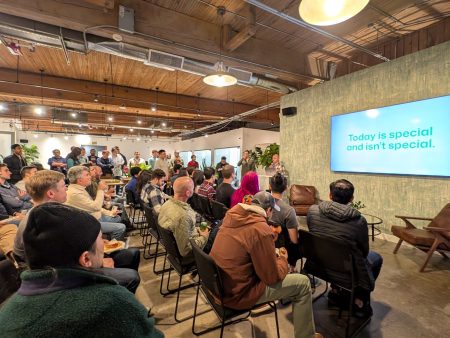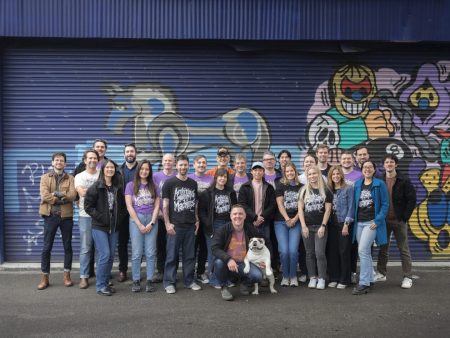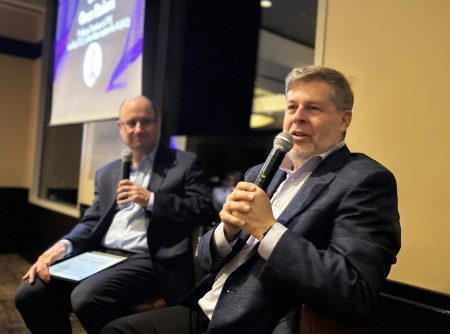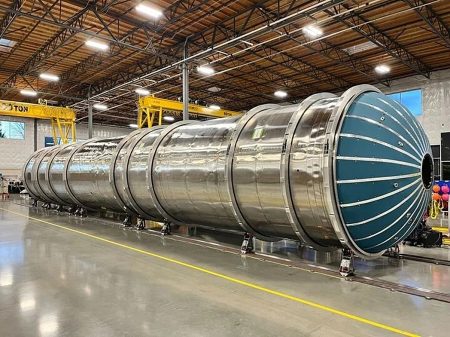Tech Week in Review: Leadership Shifts and Innovation Thrive in the Pacific Northwest
In a significant leadership reshuffle at Microsoft, CEO Satya Nadella has decided to delegate day-to-day commercial operations to Judson Althoff, a longtime sales executive who will now serve as CEO of commercial business. This strategic move allows Nadella to focus on broader company vision and strategy while entrusting Althoff with the execution of Microsoft’s commercial initiatives. The transition comes as Microsoft continues to integrate artificial intelligence across its product suite, rolling out new AI features in Word, Excel, and PowerPoint under what the company refers to as “vibe working.” These updates introduce Agent Mode and Office Agent capabilities, designed to handle complex multi-step tasks and generate documents, spreadsheets, and presentations through Microsoft’s Copilot technology. This represents Microsoft’s ongoing commitment to embedding AI throughout its productivity ecosystem, aiming to transform how people work and collaborate in increasingly digital environments.
Meanwhile, Starbucks is experiencing some turbulence in its technology leadership as CTO Deb Hall Lefevre has stepped down, according to Reuters. Her departure comes at a challenging time for the Seattle-based coffee giant, which is currently implementing layoffs and navigating various technology-related changes. This leadership gap emerges as many retail companies are increasingly relying on technology solutions to enhance customer experience and operational efficiency. Starbucks has been investing heavily in digital ordering, loyalty programs, and other tech-enabled services, making the CTO position particularly critical for the company’s future strategy in an increasingly competitive market landscape.
The Pacific Northwest continues to cement its position as a hotbed for technological innovation and startup activity. Seattle Fusion Week kicked off its annual gathering, highlighting the region’s growing importance in the fusion energy sector. This event brings together researchers, investors, and industry leaders to explore advancements in sustainable energy solutions that could potentially revolutionize how we generate and consume power. However, not all energy initiatives in the region are thriving – the Pacific Northwest Hydrogen Association, a multi-state hub established to develop a hydrogen economy, recently lost $1 billion in federal funding, representing a significant setback for alternative energy development in the area.
The startup ecosystem in the Pacific Northwest is showing remarkable resilience and growth despite broader economic uncertainties. Temporal, a Seattle-based developer tools startup, recently closed a $105 million secondary transaction led by GIC, which has elevated its valuation to an impressive $2.5 billion. This funding demonstrates continued investor confidence in developer-focused technologies that enhance productivity and efficiency. In another significant funding announcement, Seattle-area startup Summation has emerged from stealth mode with $35 million in backing from prestigious venture capital firms Benchmark and Kleiner Perkins. Summation is focusing on transforming executive decision-making processes for high-stakes business choices, highlighting the ongoing demand for tools that can enhance strategic thinking and analysis in complex business environments.
The intersection of military experience and technological innovation is exemplified by Jonathan Pan, who served in Afghanistan after 9/11 and is now leading Exia Labs as co-founder and CEO. His Seattle-area company is developing AI software specifically designed to improve military wargaming scenarios. This represents a growing trend of veterans applying their firsthand operational knowledge to create technological solutions for defense and security challenges. Pan’s journey from military service to tech entrepreneurship illustrates how diverse experiences can inform innovation in specialized technology sectors, particularly in applications where real-world expertise provides crucial insights that purely technical backgrounds might miss.
The debate around computer science education and career prospects has intensified, with Code.org founder Hadi Partovi publicly challenging media narratives that question the value of computer science degrees. Partovi specifically criticized a New York Times podcast episode and ongoing media reports suggesting that computer science graduates are facing disappointment in their job prospects and salary expectations. This controversy unfolds against a backdrop of evolving workforce needs, where AI coding tools are dramatically changing software development practices and accelerating code generation. The tension between traditional computer science education and rapidly evolving industry demands reflects broader questions about how educational institutions, employers, and workers themselves should adapt to technological changes that are transforming not just what we build, but how we build it. As AI continues to reshape software development workflows, the skills that remain most valuable may be those that complement rather than compete with automated systems.













